Spending on digital marketing is going up fast, showing how important it is for businesses today. For those looking to start in digital marketing, It’s expected to reach $389 billion by 2024, up from $332 billion in 2021. Furthermore, this increase highlights how much companies are investing in online platforms. They see digital marketing as effective for connecting with customers on places like social media, search engines, and email.
Digital marketing is important for businesses today. However, with more people shopping, seeking entertainment, and finding information online, having a strong internet presence is essential. Businesses without an online presence risk missing out on reaching a large number of potential customers.
Digital Marketing and How It Works
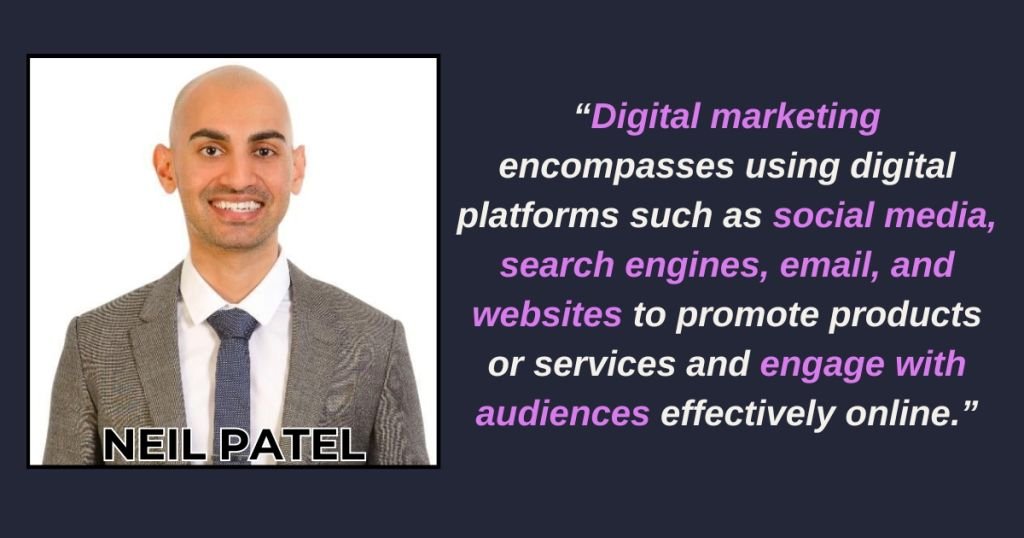
According to Neil Patel,“Digital marketing encompasses using digital platforms such as social media, search engines, email, and websites to promote products or services and engage with audiences effectively online.”
Digital marketing involves having a good website, using social media actively, and running online ads. In addition, these tools help businesses connect with their audience, showcase products, and strengthen their brand. Being online allows businesses to reach more people, gain insights into their customers, and compete successfully in the market.
10 Steps To Start Digital Marketing
1. Learn the Basics of Digital Marketing
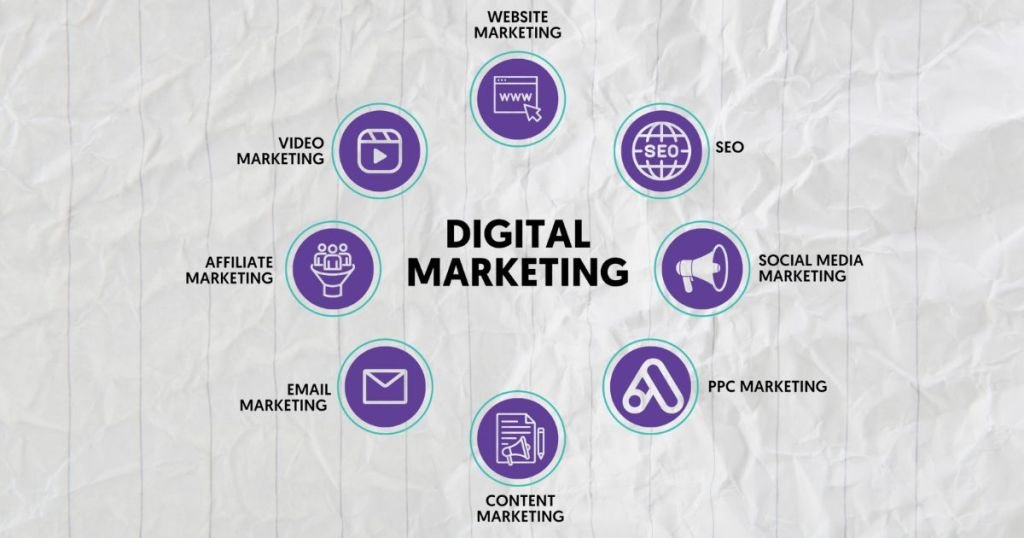
If you’re new to digital marketing, start by understanding its basics and main parts. Digital marketing, also called online marketing, aims to promote things on the internet. It uses different channels for various types of online promotion, bringing together different activities into complete campaigns.
Digital marketing includes several key channels:
- Search Engine Marketing: This includes search engine optimization (SEO) and paid search ads.
- Website Marketing: Techniques to promote your website online.
- Content Marketing: Using various types of content in your digital campaigns.
- Email Marketing: Promoting products or services via email.
- Social Media Marketing: Marketing on platforms like Facebook, Instagram, and others.
- Mobile Marketing: Marketing on app stores like Google Play and the Apple Store.
- Video Marketing: Promoting on video platforms like YouTube and Vimeo.
- Affiliate Marketing: Selling products by promoting others’ goods and earning a commission.
2. Create Your Own Website

After grasping the basics, start practicing digital marketing by creating your own website. Digital marketing is hands-on and measurable. Knowing the theory isn’t enough; you must put it into action.
- Building Practical Skills: Along your journey, you’ll enhance website traffic (SEO) and boost sales with PPC and social media ads. To build skills and gain confidence, start a blog, work on improving search rankings, and run ads to sell products.
- Time and Persistence: This process takes time, and the learning curve can be tough, but it builds a strong foundation. Having your own website helps you learn and serves as proof of your skills when applying for jobs or pitching to clients.
- Proving Your Expertise: When hiring new digital marketers, we don’t just look at certifications. We want people who can show what they know, and a website with high rankings and traffic is the best proof of your abilities.
3. Become An SEO Expert

To begin a career in digital marketing, it’s essential to master SEO first. Learning SEO helps you create websites that are loved by both users and search engines. These skills can also be applied to enhance Google Ads and Facebook paid campaigns.
Take your SEO journey step by step. Once you feel confident in your SEO skills, you can then move on to learning other aspects of digital marketing.
4. Get a Google Ads Certification
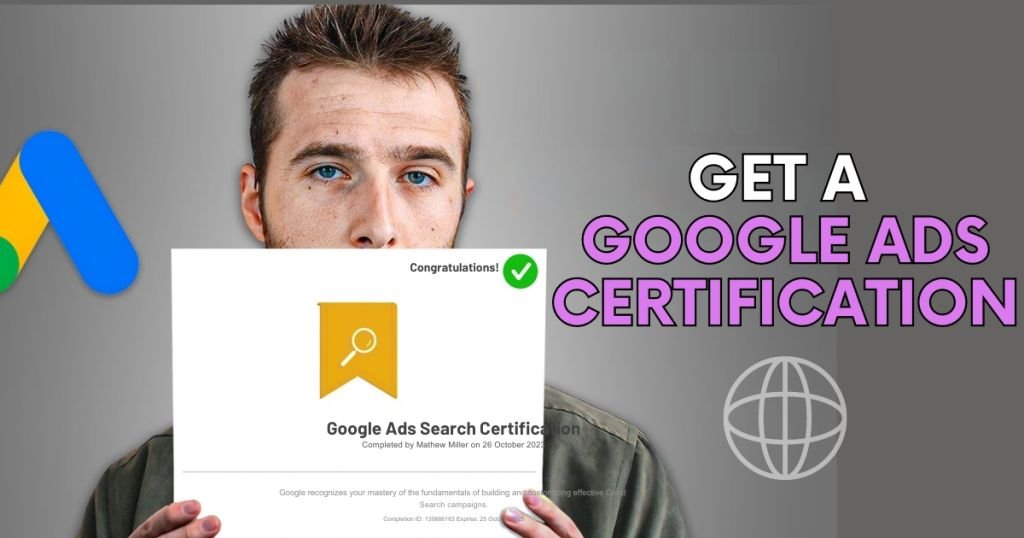
As a digital marketer, you’ll need to use Google Ads to promote products or services on Google and other websites.
The quickest way to learn these skills is by getting a Google Ads certification. There are many online resources to help you become an expert in Google Ads. Getting certified shows clients or employers that you have the skills needed.
5. Master Facebook Ads Advertising
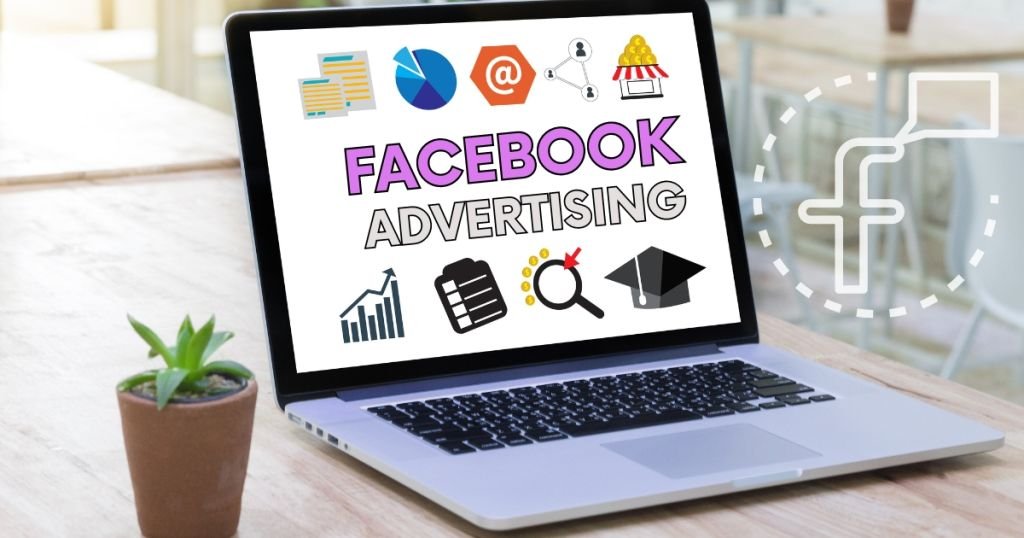
The next step is to begin social media marketing, focusing on Facebook Ads. As a digital marketing specialist, you should learn how different social networks work (Twitter, Instagram, Pinterest, LinkedIn), but most of your time and budget will be spent on Facebook and Instagram.
Facebook is not just a social network; it’s now a key tool for digital marketing campaigns. Getting organic reach on Facebook is tough, so you need to learn how to use its advertising platform to sell.
If you already know SEO and Google Ads, learning Facebook Ads will be easier. Many concepts are similar to PPC, but you still need to learn how to use the tool and understand Facebook’s policies.
6. Become An Expert In Google Analytics
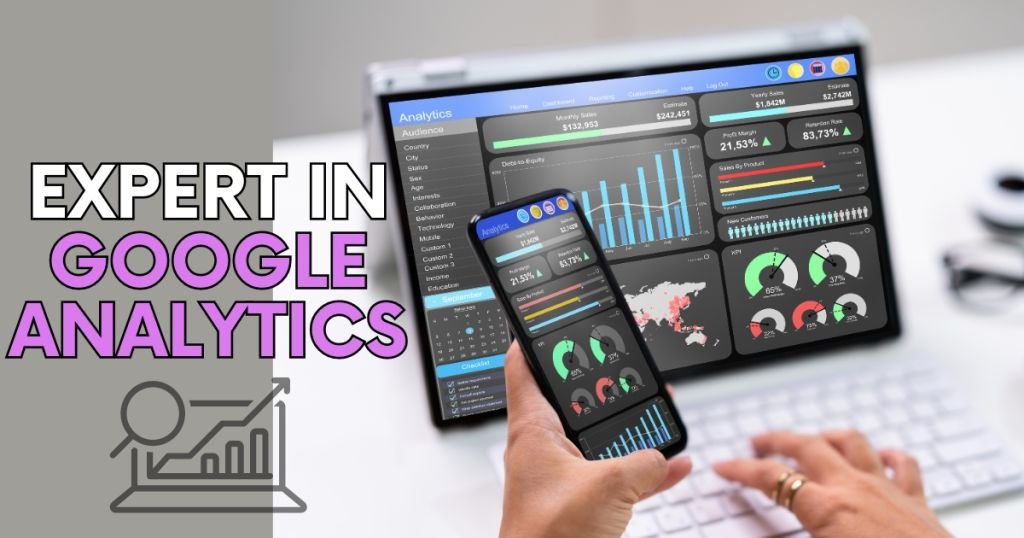
To start in digital marketing, it’s important to understand analytics and master traffic-driving tools. However, measuring your campaign’s performance is essential—you can track views, ad clicks, conversions, and other metrics to assess its effectiveness.
Learning Google Analytics is invaluable for interpreting this data and making informed decisions about your campaigns.
7. Become a Freelance Digital Marketer

To start freelancing in digital marketing, focus on securing real client projects. While having your own website is helpful, working directly with clients teaches essential skills such as managing accounts, analyzing data, budgeting, and effective communication. Find freelance digital marketing jobs on platforms like Upwork.com, PeoplePerHour.com, and Fiverr.com.
If you’re new to freelancing, begin with simple and quick tasks before moving on to larger projects. It can be tough for freelancers without feedback to land jobs, so it’s important to:
- Carefully read job requirements and answer any questions in your application.
- Respond promptly. Many jobs receive numerous applications, so being quick can give you an advantage.
- Keep your rates competitive and reasonable. Without experience, it’s challenging to command high fees. Focus on gaining experience now to earn more in the future.
8. Work As A Digital Marketing Intern

Work as a digital marketing intern at a reputable agency to quickly gain skills and experience. In addition, this will teach you how modern agencies operate, which is helpful if you start your own agency or join another company later.
Starting as a freelance digital marketer without company experience can be harder. You’ll have to learn everything on your own, and managing clients is different from managing your own websites. Without proper processes, you might spend time on tasks that don’t earn money, reducing your income.
9. Stay Updated and Keep Learning
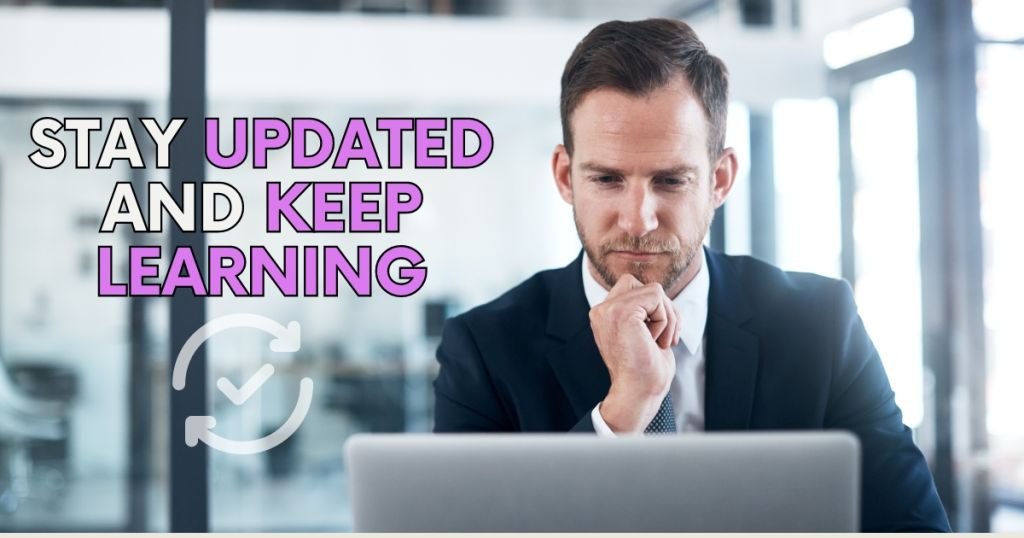
Stay updated and keep learning. Digital marketing strategies change often. Some marketers like these changes; others find them hard. But digital marketing evolves quickly.
Google updates its search algorithms many times a year. Facebook’s algorithm also changes regularly. Hence, the digital marketing world is always shifting. If you want a career in this field, be ready to learn every day. Even after many years in digital marketing, I still learn something new daily.
In fact, I spend about 20% of my time reading industry updates, exploring case studies, learning new tools, and keeping up with changes across all digital marketing platforms.
10. Master Digital Marketing Tools
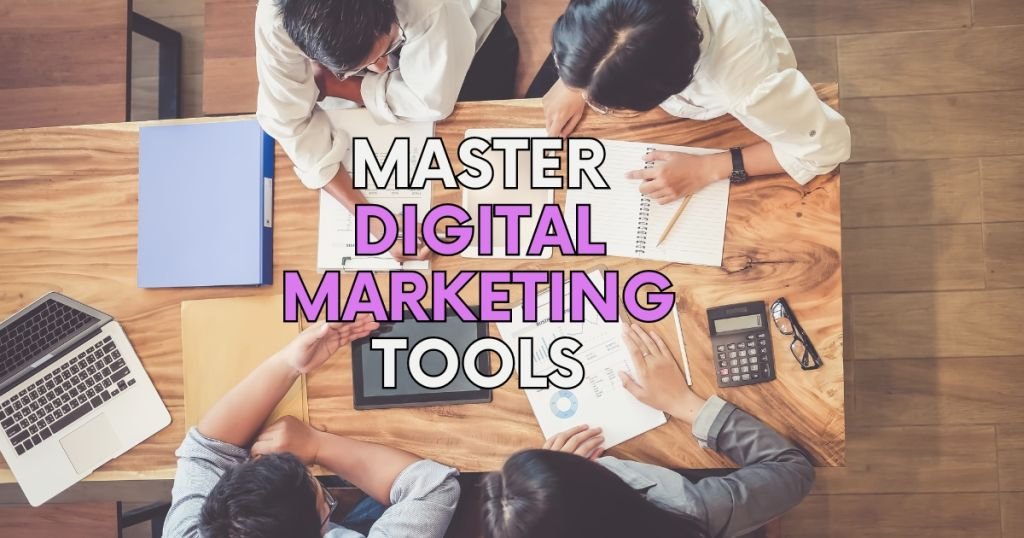
Learn to use digital marketing tools effectively. Besides mastering Google Analytics, get familiar with other tools. As a digital marketing manager, you’ll need tools to evaluate work and track multiple projects.
A good tool lets you create dashboards for all channels and generate reports for management or clients. Though these tools may cost a monthly fee, they are an investment in your career and enhance your resume. Here are my recommended tools:
- Google Looker Studio – Free to use, ideal for creating customized dashboards and generating visually appealing reports.
- Semrush – A tool I use daily for various digital marketing needs.
- Google Search Console – A free tool by Google that monitors your website’s performance in Google search results.
Final Thoughts
Starting in digital marketing may feel overwhelming, but grasp the basics, set clear goals, and use a solid strategy to connect with your audience. Furthermore, monitor your results and adjust your approach when necessary. With determination, your efforts can boost your business.
To become a digital marketer, learn, gain experience, and stay updated with trends. Furthermore, develop various skills and practical knowledge to build a successful career in this field. Keep learning and adapting to succeed in digital marketing.
FAQs
What are the first steps to begin digital marketing for my business?
To begin in digital marketing, learn about SEO, content marketing, social media, email marketing, and PPC advertising. Next, set goals. Know your audience, make a user-friendly website, and plan content they’ll like. Start on social media and think about using SEO and email marketing.
How can I identify my target audience for digital marketing?
Finding your target audience means figuring out who your best customers are. Look at their age, gender, where they live, what they like, and how they act online. However, tools like Google Analytics, social media data, and surveys can help you collect this info. Knowing your audience helps you adjust your marketing to fit what they want.
What is SEO and why is it important for digital marketing?
SEO improves your website’s ranking on search engines through keyword research, content creation, and link building. It’s important for digital marketing because it increases visibility, boosts organic traffic, builds credibility, and is cost-effective. Good SEO enhances user experience and supports other marketing strategies like content and social media, helping to improve your online presence and achieve sustainable growth.
How can social media benefit my digital marketing efforts?
Platforms like Facebook, Instagram, Twitter, and LinkedIn help you connect with your audience, share content, and promote your brand. Furthermore, they allow direct customer engagement, building relationships and understanding preferences. Social media ads can target specific groups, increasing website traffic. Regular use of social media boosts your brand’s visibility and customer loyalty.
